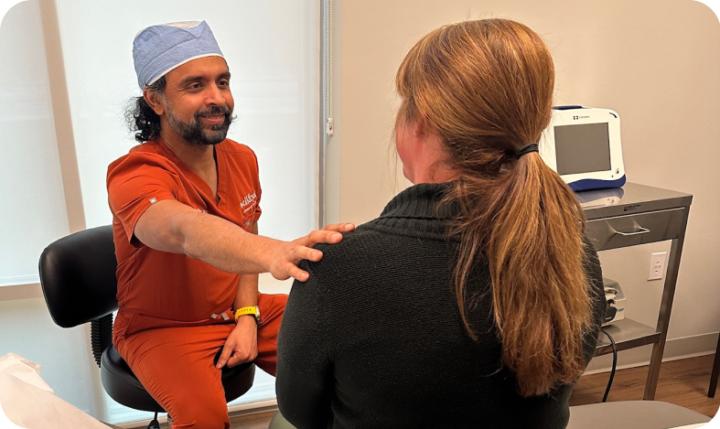PCS Diagnosis with MRI or Ultrasound: What Jacksonville Patients Should Know

Pelvic Congestion Syndrome (PCS) can cause chronic pain that disrupts your life. Accurate PCS diagnosis with MRI or ultrasound is essential for women in Jacksonville, North Florida, and the First Coast. In this article, we’ll explain how these imaging tools work, what to expect during your test, and how local specialists use results to guide your care.
Why Imaging Is Essential for PCS Diagnosis
PCS is caused by enlarged, twisted pelvic veins. Symptoms can mimic other conditions, so precise imaging is key to confirming the diagnosis and planning effective treatment.
What Is an MRI for PCS Diagnosis?
MRI (Magnetic Resonance Imaging) uses powerful magnets and radio waves to create detailed images of your pelvic veins. It’s non-invasive, painless, and provides a clear view of blood flow and vein structure.
Benefits:
- No radiation exposure
- High-resolution images
- Detects subtle vein abnormalities
What Is an Ultrasound for PCS Diagnosis?
Ultrasound uses sound waves to create real-time images of your pelvic veins. It’s quick, safe, and widely available in Jacksonville.
Benefits:
- No radiation
- Can assess blood flow and vein size
- Often the first step in PCS diagnosis
What to Expect During Your Imaging Test
- Ultrasound: You’ll lie comfortably while a technician moves a small device (transducer) over your pelvic area. The test usually takes 20-30 minutes.
- MRI: You’ll lie inside a large, open tube. The scan takes 30-60 minutes. You may be asked to hold your breath briefly for clearer images.
Both tests are painless and require minimal preparation.
How Results Guide Treatment
Your specialist will review the images to:
- Confirm or rule out PCS
- Identify which veins are affected
- Develop a personalized treatment plan
Jacksonville clinics use the latest imaging technology for the most accurate diagnosis.
Conclusion
PCS diagnosis with MRI or ultrasound is the gold standard for women in Jacksonville and the First Coast. If you’re experiencing chronic pelvic pain, schedule your imaging today for answers and a path to lasting relief.